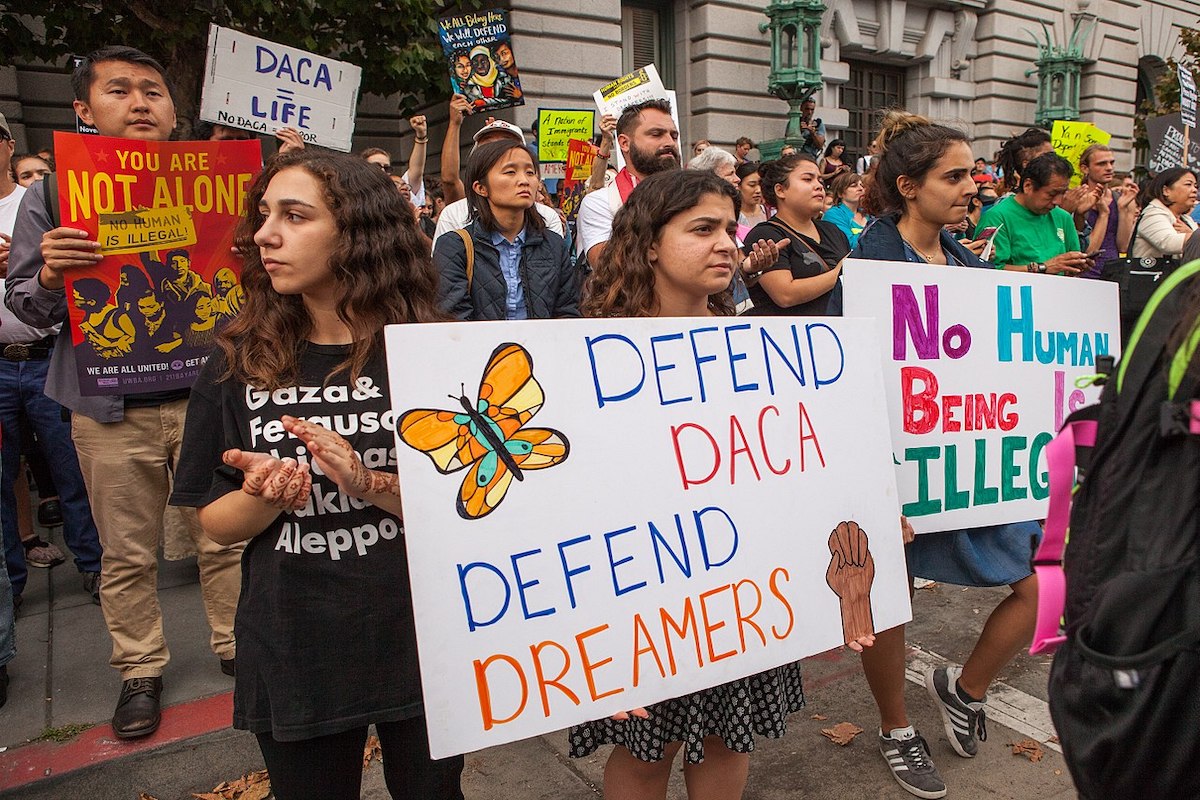Leer este artículo en español
With the prospect of a legislative solution for Dreamers – and the millions of undocumented immigrants in the country – as far off as ever, the California-Mexico Studies Center is raising anew the idea of a presidential pardon in its newsletter, “El Magonista.”
The idea is not new. In 2017, immigrant rights activists asked former President Obama to use his pardon authority in the days prior to then-President-elect Trump’s inauguration to protect undocumented immigrants or, at the very least, Dreamers.
Obama refused, and under Trump every effort was made to eliminate Obama’s signature DACA program, which offered temporary protection for those undocumented immigrants who arrived in the US as children.
While courts at the time protected DACA, it’s now under siege again and will likely come before the Supreme Court for a third time. It has survived similar legal challenges twice before, but all bets are off with the current makeup of SCOTUS.
The editorial by El Magonista calls on President Biden to use his pardon for “Dreamers and other undocumented peoples living in the United States.”
“No other viable solutions have been suggested by any other immigration groups or elected officials – PERIOD,” the authors argue. “The time has come for Dreamers to stand up and demand President Biden issue a full pardon to all undocumented residents.”
It’s been 21 years since the first DREAM Act legislation was introduced in Congress. Dreamers have since become a powerful advocacy voice within the US immigration policy arena.
But some activists contend that a pardon will not regularize Dreamers’ status. They also question the legal force such a pardon would carry given that under current law being undocumented is a civil violation rather than an actual crime.
But there is a growing sense of desperation within the immigrant rights movement because, as El Magonista notes, “no one else has suggested anything but hollow, band-aid efforts to finally relieve the 11 million undocumented immigrants living, working and paying taxes in the U.S. right now.”
From day one the Biden administration promised comprehensive immigration reform, including protection for Dreamers. And while it has reversed many Trump-era administrative rules and regulations, it has since hardened its position on asylum and border issues in response to growing political pressure from the right coupled with the continued arrival of migrants from Venezuela, Nicaragua, and Cuba, among others.
Just last week the administration proposed a new rule on asylum requiring non-Mexican petitioners to first seek asylum in one of the countries they pass through before entering the US. The move united the typically fragmented immigrant rights movement in opposition to what they are calling the “Trump Ban 2”
While clearly designed to deflect conservative criticism of Biden as an “open border President,” the fact is that restrictionism has never been a winning strategy for Democrats, either in protecting them from Republican attacks on immigration or in winning votes from erstwhile supporters.
Obama is a perfect case in point. He deported more immigrants than almost any prior president, a fact that won him few if any Republican allies. He also created DACA, protecting some 600,000 Dreamers from deportation.
A decade later, even that protection now appears to be faltering, leaving the country – and millions of undocumented immigrants – mired in continued immigration policy paralysis.
Pilar Marrero is the Associate Editor of Ethnic Media Services and has covered immigration for at least 20 years for La Opinion and other media. In 2012, she wrote the book Killing the American Dream, chronicling 25 years of immigration policy mishaps, and not much has changed since then.




